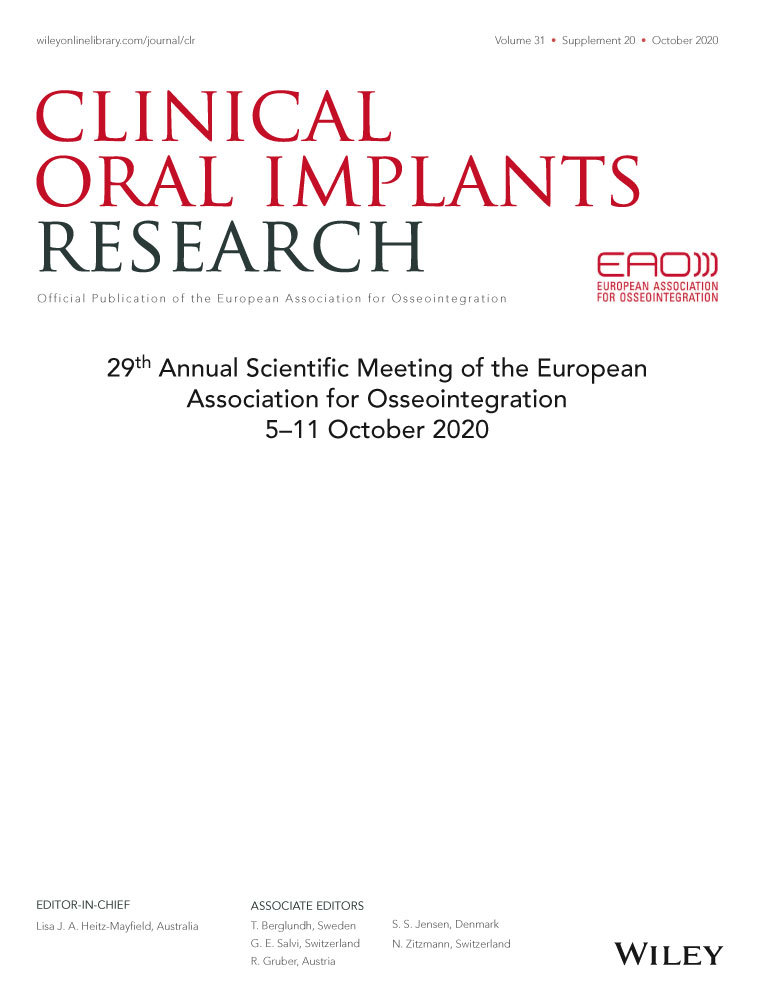Reinforced PMMA in full arch implant-supported reconstruction: toward access to care
JN2ZE ePOSTER CLINICAL INNOVATIONS
Background: The cost of dental implant replacement of missing teeth is moving beyond accessibility for many patients. Today's economic environment of decreased job availability and income, and increased stresses on insurance coverage, will likely strain access to care across the spectrum of health needs including tooth replacement. Implant dentistry can reverse this trend by adopting advances in resin chemistry to improve prosthetic efficiency.
Aim/Hypothesis: Advances like graft-less, angled implant delivery have reduced surgical costs. Prosthetic materials have modernized to a degree, but cost efficiency remains elusive. Multiple prosthetic steps may waste the gains of efficient surgeries. The challenge is to reduce prosthetic complexity.
Materials and Methods: PMMA (polymethyl methacrylate) has been a long-time ally of prosthodontists because of its wide range of esthetic applications and its relative compliance with loading. Fatigue fracture has limited its application in fixed prosthodontics, though. Full-arch implant-supported prosthetic treatment today uses a PMMA prosthesis provisionally, but following healing, it is typically replaced with a metal bar/acrylic wrap prosthesis or with monolithic zirconia. Both need additional appointments and laboratory steps. Resin chemistry has experienced dramatic growth in the last 2 decades. The proposed technique here utilizes some of these changes to convert a single PMMA denture, reinforced with a glass fiber composite-resin-impregnated mesh, to a long-term, durable restoration on the day of surgery. Chemical bonding of the fiber to PMMA results in a homogeneous mass with high flexural strength and elasticity.
Results: Effective strengthening of a permanent restorative material eliminates laboratory procedures beyond the making of the initial denture. Surgery remains unchanged from standard procedures, and a one-time lift-off of multi-unit housings gives accurate fit to the abutments. A conversion technician or trained dental assistant can create the permanent restoration at the chair immediately following implant surgery. Following healing, if necessary for comfort or phonetics, the tissue surface of the prosthesis can be modified with bonded PMMA or composite, also at the chair and also by the assistant. The published properties of this combination of materials should match the durability of materials currently in use, but that remains to be tested. This presentation shows cases up to 3 years in function. Treatment time and treatment fees are reduced. Patients in this market receive complete treatment at fees 40% below comparable because costs of additional prostheses are eliminated.
Conclusions and Clinical Implications: This clinical approach, as a proof of concept, proposes an application of resin technology that is relatively new and offers improved acceptance of treatment for full-arch edentulism. The need for a second prosthesis may be delayed INDIAfinitely. By reducing cost and providing a functional, esthetic, and enduring restoration, more patients will gain access to quality implant treatment.
Acknowledgements: Dental technician: Kent King, QDS Dental Lab, Phoenix.
Keywords: Reinforced PMMA, Full-arch fixed prosthodontics, Glass fiber reinforcement, Access to care




